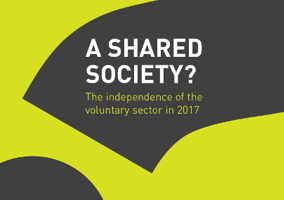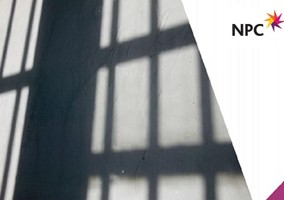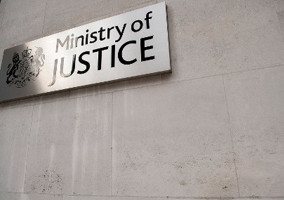Voluntary sector organisations are well placed to highlight failings in the state system, says Anne Fox, but government is growing less likely to listen.
In her ‘Shared Society’ speech the Prime Minister said ‘building a stronger, fairer Britain that works for everyone’ would start ‘by tackling some of the burning injustices that undermine the solidarity of our society’. She went on to provide the example of how overrepresented black people are in our criminal justice system.
By shining a light on that injustice she got closer to acknowledging one of our society’s starkest facts - that the criminal justice system holds up a mirror to our society and shows its worst attributes.
Overrepresentation from poorer communities, minority groups that experience discrimination, people who have been in care, children that have been excluded from school, children that have experienced abuse, those with learning disabilities, people suffering from mental ill-health, addiction to drugs, and experiencing homelessness.
As is often the case when people are facing real disadvantage, society responds through civic action and the voluntary sector. Working alongside the estimated 350,000 men, women and children in our justice system are approximately 1,750 voluntary organisations. Some provide direct services, some campaign, most do both to some degree. Wherever you live and whatever the nature of your need there is likely to be a dedicated voluntary organisation with an offer for you.
The voluntary sector has lots to say about how the system could be changed, informed by the experiences of their service users, their volunteers and the knowledge of skilled employees that work in a system we know has many flaws. Voluntary organisations are uniquely positioned to look over that whole landscape and see how the system does or doesn’t fit together. They can and often do see the system differently than its individual cogs (the police, court, prison, and probation services), making them a valuable critical friend with a mutual interest in making the system better.
It’s a sector with a rich history and legacy and to which we can attribute the creation of the very concept of prison visiting and probation, always pushing to find ways to balance the need for retribution with the need for rehabilitation and reintegration back into a society which may often have failed them from their earliest days.
But these voluntary organisations require an audience that is willing to listen and act.
Over recent years the trend has been for them to be increasingly sidelined and silenced. Organisations who provide contracted services may feel, or indeed have been told that they cannot criticise the system within which they work. Other organisations have fallen silent under the sheer pressure - reducing the scale and scope of their advocacy work to keep their services open and focussed on meeting immediate need in the face of austerity and the eradication of many local services which their clients relied upon.
The problem is not just specific ‘gagging clauses’ in contracts or ‘no advocacy clauses’ in grant agreements, but statutory funding that is scarcely sufficient for the voluntary sector to be a delivery agent, let alone a delivery partner.
It is clear from the Prime Minister and her government that there is an appetite for reform of the systems which drive social inequality and injustice in modern Britain. As a result of increasing violence and deaths in custody the Ministry of Justice is also focussed on reforming our prisons, from staff to the bricks and mortar.
It is therefore imperative that there is an open conversation about how we create a Shared Society which works for the most disenfranchised and the most marginalised and delivers true justice. The creation of a role in 10 Downing Street with a focus on the voluntary sector, including its role in the criminal justice system, is very welcome and could provide a way to link the Prime Minister’s ambition to the voluntary sector.
These are necessary and welcome reforms, but they also represent a huge challenge, one that will be made all the more difficult if the voluntary sector continues to be side-lined. There needs to be genuine, formal engagement, with the sector as an equal partner, and this is not happening yet. And it will be essential that voluntary organisations are also enabled and encouraged to take part in the process, with funding made available, not just to deliver the system as it is now, but also to help redesign it so it works much better.
Anne Fox is chief executive of Clinks
Related articles











